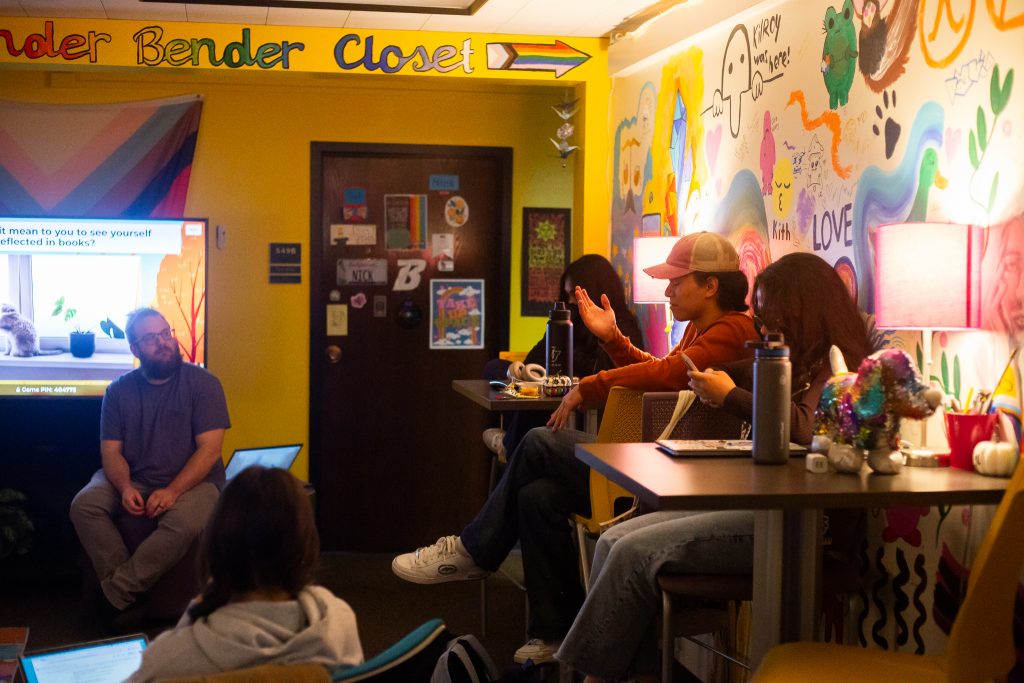In honor of Banned Books Week, the Q Center on Sept. 25 hosted “Queer-ies: Banned Books.” Students gathered in the center lounge’s comfortable bean bag chairs and discussed the history of banned books.
Banned Books Week started in 1982 as a time of observance for all of the books in the United States, which were, for the most part, unjustly banned. This observance was a time to create awareness of the number of books that were being banned and or challenged in libraries and classrooms across the United States.
Mansha Rahman, student manager of the Q Center and a junior double-majoring in art and design and Spanish, explained how many of these books are banned because they contain LGBTQ+ relationships, specific cultural traditions, sexual content and references to religion, especially if such religions are portrayed in a negative light.
An increasing number of books are being challenged within classrooms, and a quick Kahoot at the beginning of the event mentioned that as of Aug. 31, 2024, 1,128 books have been challenged in the United States this year.
The Q Center’s event aimed to educate and raise student awareness about the growing issue of banned books in the United States. From colorful couches and comfortable rugs that students sprawled on, the event speaker gave prompts to make students think about the world around them.
Some questions included, “What is the line between restricting age-appropriate content and censorship?” and “What can we learn from fiction featuring diverse characters?” Each question sparked a unique and reflective view from the audience. The more people shared, the more others chimed in. The environment created a safe sharing space — ideal for discussions like these.
The event ended with a look into the future. The conversation shifted from the current state of banned books to what can be changed going forward. Students began brainstorming ways they could alter the status quo and create the change they wanted to see in the future, especially for younger generations.
“Books are how most children are exposed to certain topics and areas of life that are not discussed in adulthood,” Rahman wrote in an email. “Books are children’s first exposure to the world, and we should always talk about ways we can expose people to the communities shunned in the media.”
Before the event ended, attendees were handed a list of recently banned or challenged books. Most were targeted to a younger audience, including coming-of-age stories like “The Song of Achilles” by Madeline Miller and “They Both Die at the End” by Adam Silvera. Most of these books were written for queer audiences and written by or for the BIPOC community.
“I believe we should have these events, not just for the people at the Q Center but all over campus,” Rahman wrote. “Intersectionality is such an underrepresented portion of the queer community that I don’t think we as a student body care enough about. I don’t see enough cultural organizations show a willingness to be educated about these types of issues, which makes it even more important to keep having events like these!”



